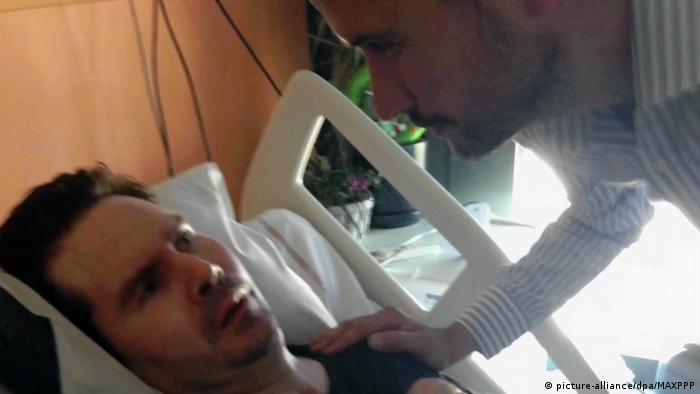European court allows “vegetative” patient to be starved to death
Doctors have been given permission to remove food and water from Vincent Lambert, a severely brain-damaged, 38-year-old Frenchman.

Doctors have been given permission to remove food and water from Vincent Lambert, a severely brain-damaged, 38-year-old Frenchman. After a long legal battle, the European Court of Human Rights ruled last week that ending artificial nutrition and hydration did not violate Article 2 of the European Convention on Human Rights, which guarantees the right to life.
Like the Terri Schiavo case, the fate of Mr Lambert, who was injured in a car accident seven years ago, has pitted his parents against his wife. In this case, his wife Rachel says that he would not want to be kept alive in a vegetative state. She is supported by six of his siblings. His parents, however, deny that he is in a vegetative state and are supported by two of Lambert’s sisters and a half-brother, have vowed to fight on to keep him alive. They claim that he is responsive.
This week the controversy erupted again when a supporter of the parents released a video which purported to show Vincent responding to his mother’s voice. Doctors were outraged. His former doctor said that this proved nothing. “These patients in a vegetative state react to their environments but it is a vegetative response,” he said. “This video is an attack on his dignity and his right to privacy – it’s manipulative and plays on people’s emotions.”
In 2013 a lower court allowed doctors to discontinue treatment. Lambert lasted 31 days without food and very little water before a judge ruled that this breached his right to life. The present judgement overturns this ruling. Euthanasia is currently illegal in France, but the court reasoned that withdrawing “life-sustaining treatment” was not directly causing his death and that therefore this could not be regarded as euthanasia.
Twelve of the judges in the ECHR voted to allow Lambert to be starved to death. However, there were five who strongly dissented. They pointed out that he is not brain-dead, can breath on his own without a life-support machine, can digest food, is not in pain and is not in a terminal situation. “What is the overriding reason, in the circumstances of the present case, justifying the State in not intervening to protect life?… Is it because the person is of no further use or importance to society, indeed is no longer a person and has only ‘biological life’?” They concluded:
“In 2010, to mark its 50th anniversary, the Court accepted the title of The Conscience of Europe when publishing a book with that very title … We regret that the Court has, with this judgment, forfeited the above-mentioned title.”
According to the European Centre for Law and Justice, tens of thousands of other patients in Europe are in the same situation as Mr Lambert. It says that this decision puts their lives at risk.
Creative commons
euthanasia
France
vegetative state
- How long can you put off seeing the doctor because of lockdowns? - December 3, 2021
- House of Lords debates assisted suicide—again - October 28, 2021
- Spanish government tries to restrict conscientious objection - October 28, 2021
